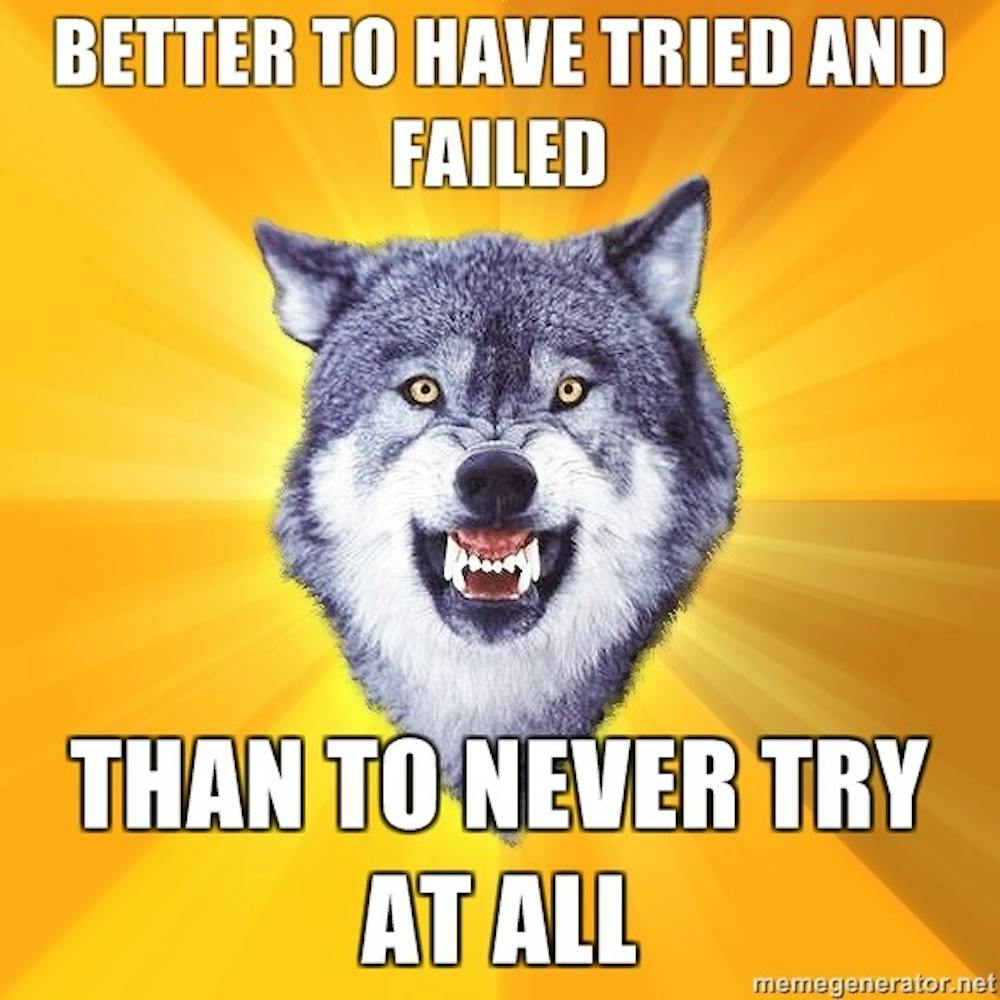“Good ideas are common - what's uncommon are people who'll work hard enough to bring them about” – Ashleigh Brilliant
Everybody’s got that one idea they think will get them a million dollars. Students are guiltier than most of this. I challenge you to not have a day when you hear a friend tell you about their idea to revolutionize the world. In this two-part series, I’m going to try to bring up some tools and strategies to actualize your idea and hopefully make it big on the Internet. First up, content.
“Content Is King” - Internet Meme When Building a Website
Content, according to Wikipedia, is “Information and experiences that may provide value for an end-user/audience in specific contexts.” So this idea of content can range from a prepackaged game or movie, to a flame war that erupts because of an inflammatory blog post. Try to think of the Internet as an ecosystem for ideas where your goal is to add your content to the sea of free stuff that is already out there being remixed, discussed, and re-released for free. The idea of copyright infringement kind of goes out the door when you realize that everything you create can be zero cost redistributed incredibly easily. My feelings are to try and embrace the chaos that comes from putting your stuff on the web. If people like your work enough to tinker with it, then the word of mouth alone is worth the price of creation.
“The opposite of love is not hate, it's indifference.” - Elie Wiesel
No matter what the form of the media, your idea should add to the conversation with your audience in some meaningful way. You really need to know the community and audience that your content is aiming for. Visit the forums, watch the movies, do the grunt work to find out what this group of people are all about. Then don’t just co-opt this group to try and sell your works — actually be a contributing member of the community. If you can’t contribute to that community, than it might be time to move on to your next community. In the long run, you’ll be better off for respecting your audience rather than abusing them to possibly try and make a few quick bucks. So enough of this hoighty-toighty pondering on what your goals are and let’s get down to some real content making.
“You should read my blog, it’s pretty insightful and stuff” - Caricature of the Early 2000s Techie
Blogging is the grandfather of social media in it’s modern form and is still on the list of the primary things that people think about when making money on the internet. A blog is a great way to build identity on the Internet and should act as a one-stop shop for people to find out what you are all about.
Wordpress.com can provide you with a free and flexible blog that you can later export to a personal sever. Tumblr is a Twitter-like social network meets blogging. It’s fast, simple, and clean; while also letting you export your data out if you want to. Both of the sites along with Blogger were covered in my earlier article about blogging.
“The great hope is that now these little 8mm video recorders... just people who normally wouldn't make movies are going to be making them… and for once the so-called professionalism about movies will be destroyed. Forever. And it will really become an art form.” - Francis Ford Coppola, 1991
Video is still the easiest way to present your message and ideas to another human. A simple Flip Ultra HD should give you two hours of HD quality film for the price of $200. Combine this with Adobe Premiere Pro or even the built in iMovie/Windows Movie Maker and you can record plus edit video. Be creative when it comes to jumping the hurdles of capturing quality sound (External Mics) and overcoming terrible lighting (White blankets and lots of random lights). Remember not to forget the importance of story in your film too. Nobody wants to watch you and your cousin lip-sync to Lady Gaga.
“Music is everybody's possession. It's only publishers who think that people own it.” - John Lennon
Napster was one of the first Internet success stories for a reason — people love sharing free audio content. Whether you are recording music or just going back to edit, Audacity is a free multi-platform open-source workhorse that can take care of most of your needs. GarageBand for iMacs is a good alternative and even lets you create simple beats for free.
When choosing a microphone, the Audio Technica AT2020 is a great for only $68 on Amazon. If worse comes to worse you can always use a USB Rock Band Microphone. When it comes to recording, buy a stand to limit movement noise and a pop filter to limit other noises. The HiveLogic Podcast Equipment Guide will give you a pretty good overview of your options when making a podcast. “Inconsistency is the only thing in which men are consistent.” - Horace Smith
The fastest thing that can kill your budding Internet business is just not making content. Be consistent with your work and always make it at the highest quality possible. For the last article of the semester, we’re going to take a look at how to get your work noticed by the Internet.





